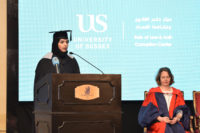
The phenomenon of traffic police abusing their power to extract small bribes from drivers is common in many countries. But how do drivers feel about it and why is it so difficult to tackle? Sussex PhD student Riccardo d’Emidio is exploring whether social norms approaches can improve our understanding of the issue, and here offers some reflections on his fieldwork in Accra, Ghana.
I am now entering the third month of my PhD fieldwork and after spending quite a lot of time in government buildings I finally managed to venture out of the centre of Accra to interview trotro (local bus) drivers on their experience of corruption on the streets of the greater Accra.
I was lucky enough to be joined by my colleague Seyram Agbemenya, who acted as interpreter when people did not speak English, but who also critically made contact with drivers in the chaotic bus station. The third member of our group was the illustrator Luca Modesti who did some live sketching during the interviews, skilfully capturing some of the details of the unusual interview setting. 
I interviewed three groups of drivers and “mates”, i.e. the helper that calls out destinations, collects the cash and squishes passengers on the packed minivans. The first two interviews took place inside parked trotros, which to my surprise created a very intimate interviewing space, sheltering us from the chaos of sellers, preachers and stalls. Curious heads would pop through the windows, trying to figure out what two “obronis”[1]were doing in a parked trotro in the heat of a Saturday morning.
The final interview took place at the resting ground of drivers and mates, under a rickety tent, where drivers wait between shifts, eat their lunch, doze off and play checkers. So, we sat on long benches next to the rowdy checker tournament and started chatting about their experience of corruption on the streets of Accra.
All participants were very vocal and outspoken with regards to their interaction with the police: they blamed their economic hardship on the police officers who stop them two or three times each trip asking them for a bribe each time. When I asked them if they had ever reported or heard of any of their colleagues reporting an officer for bribery or misconduct, they told me: “we are nobody and cannot fight this injustice…this is just the way it is”.

Many Ghanaians (and indeed many police officers) argue that the problem of bribery on the streets is a shared responsibility, since often drivers offer cash to officers as soon as they see them, without even being asked. Nonetheless drivers disagreed, they adamantly argued that paying upfront is an attempt to pay less. Apparently, if you refuse to pay, or do not “dash” (bribe) immediately the officer that stopped you with 20 or 40 Ghana cedis (between 2 and 5 GBP), they might take your driving license or take you to the police station and request more money starting from around 100 Ghana Cedis (approx. 14 GBP). While these might seem petty figures, these are important amounts for a driver.
While it is way too early to even mention the words “initial findings” from these and other interviews I conducted, these conversations sparked a number of messy thoughts (and notes) that hopefully I will get to process (at some point). For this post however, I wanted to single out and share with you one area of researchthat I found very exciting; one question for anti-corruption practitioners, and oneuseful reminder all of us working in the anti-corruption sector.
When I asked the different groups of drivers, why policemen on the streets would ask money from them, none of them hesitated: “It’s their lifestyle! This is how we are trained in this country: you make profit for yourself, not for the government!” were some of the common answers. As a researcher interested in the role and impact of social norms in shaping corrupt behaviour, this statement exemplified how social norms relating to (predatory) authority can play a significant role in shaping these daily interaction between trotro drivers and police officers. This is something that I will continue exploring in my future interviews and that I believe feeds into the Ghanaian “corruption complex”.
In all the interviews I prompted the drivers to think about possible solutions to the daily bribery they face on the streets. At one point one of them, looked at me in the eyes and responded very simply: “the police should give us receipts! This way I would pay only once a day and not three times every trip!”. While for several anti-corruption practitioners this might sound simply ridiculous or impossible to do, I wonder if there have been any attempts to put in place some kind of “harm reduction” strategies like the one suggested by the trotro driver. So, taking into account that official receipts for bribes might not be an option, my questionfor all of you out there is: what short term strategies can realistically be put in place to limit the destructive impact that petty bribes have for people in poverty? What has been done so far? Do you know of any examples? (If so, please do send them my way).
Finally, the suggestion of “official receipts for bribes” reminded me of something I was aware of but had somewhat overlooked: corruption and poverty are profoundly interlinked. As I was sitting engrossed in my readings in the library or in my air-conditioned office I had forgotten how deeply corruption and poverty feed into each other in a vicious circle, exposing already vulnerable citizens to even more threats and hardship. While this is something that several researchers and civil society organizations across the world systematically raise, I wonder whether the link between anti-corruption and poverty relief get the same attention (both in theory and in practice).
In the past years I have worked with a range of institutions and organizations from civil society and the public sector to develop anti-corruption campaigns and messaging. I have seen “Say NO to corruption” in so many languages, shapes, formats and colours that I have lost count. As I left the trotro station I couldn’t help asking myself to what extent anti-corruption reforms and interventions are actually (and purposefully) placing the bulk of the weight of “saying NO to corruption” onto the shoulders of the most vulnerable members of society. Are anti-corruption reforms taking into account the cost of opting out of corruption? If so, is that cost evenly and fairly distributed? My hunch is that this is not the case.
[1]Obroni is the Akan word for foreigner, literally meaning “those who come from over the horizon.” It is often colloquially translated into “white person.”



















Recent Comments